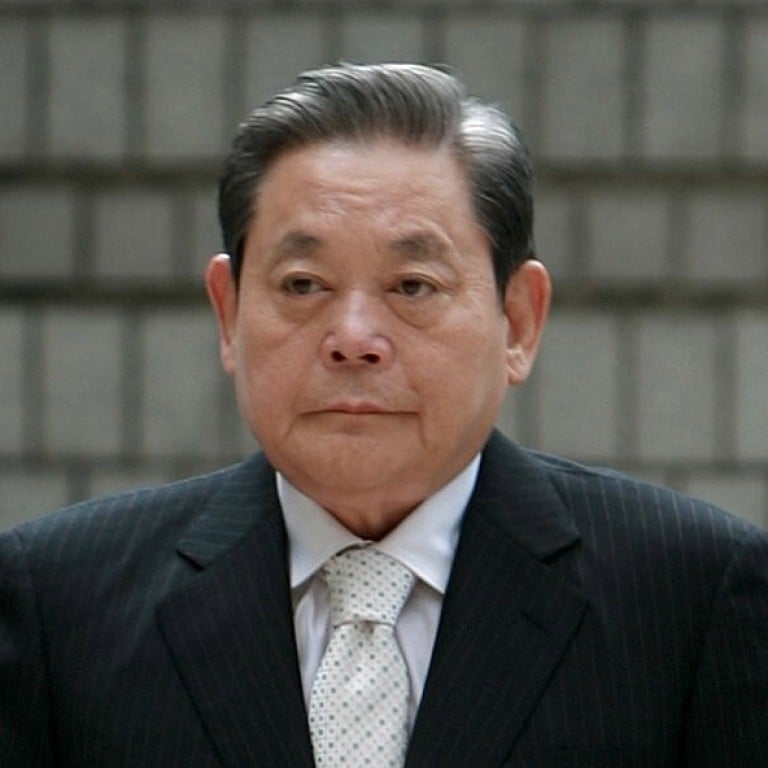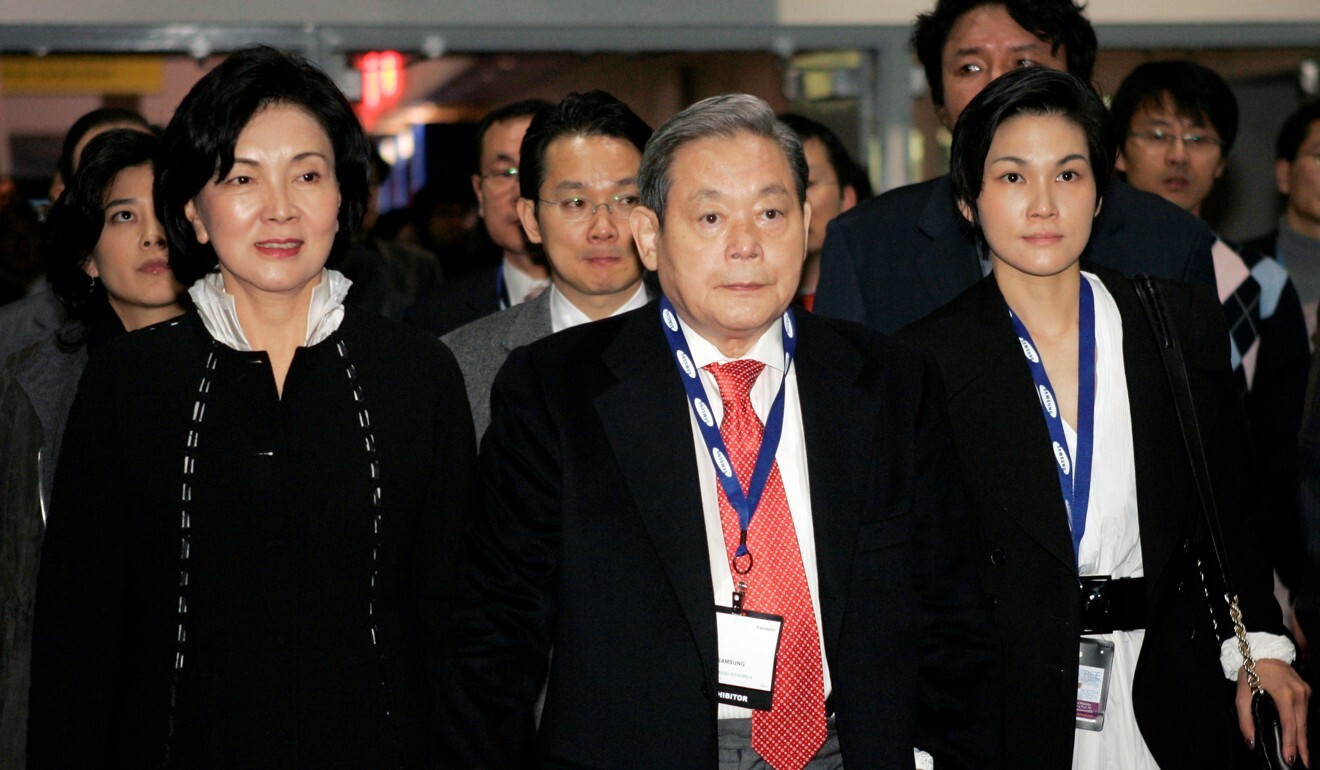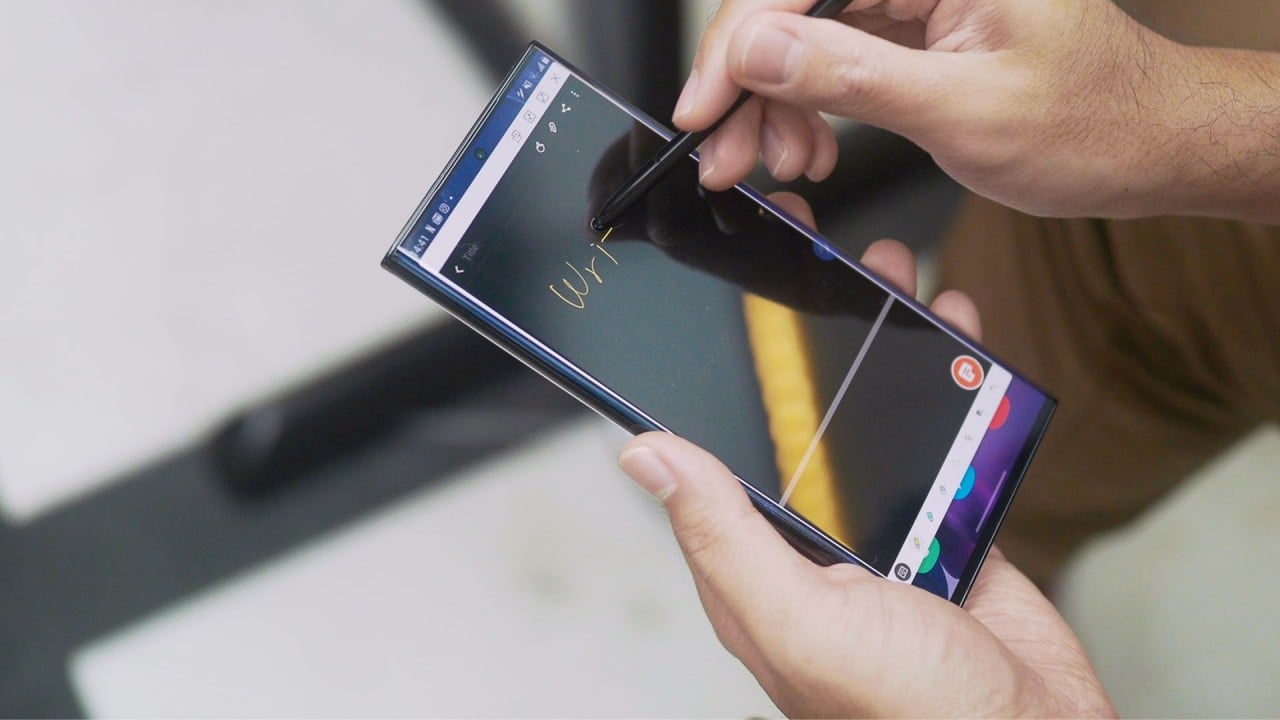
Samsung tycoon Lee Kun-hee, South Korea’s richest man, dead at 78
- Lee Kun-hee transformed the small television maker into a global giant of consumer electronics
- Lee had been hospitalised since May 2014 after suffering a heart attack
Under Lee’s leadership, Samsung rose to become the world’s largest producer of smartphones and memory chips, and the firm’s overall turnover today is equivalent to a fifth of South Korea’s GDP.
Known for a reclusive lifestyle, Lee was left bedridden by a heart attack in 2014. Little was revealed about his condition, leaving him shrouded in mystery even in his final days.
“It is with great sadness that we announce the passing of Kun-hee Lee, Chairman of Samsung Electronics,” the company said in a statement.
Mistakes, bribery and corruption behind Samsung laid bare in new book
“Chairman Lee passed away on October 25 with his family, including vice-chairman Jay Y. Lee, by his side.”
“Chairman Lee was a true visionary who transformed Samsung into the world-leading innovator and industrial powerhouse from a local business,” the firm said, adding: “His legacy will be everlasting.”
Samsung is by far the biggest of the family-controlled conglomerates, or chaebols, that dominate business in South Korea.

They drove the nation’s transformation from a war-ravaged ruin to the world’s 12th-largest economy, but nowadays are accused of murky political ties and stifling competition – with Lee himself twice convicted of criminal offences, in one case bribing a president.
When Lee inherited the chairmanship of the Samsung group in 1987 – founded by his father as a fish and fruit exporter – it was already the country’s largest conglomerate, with operations ranging from consumer electronics to construction. He was South Korea’s richest man with a net worth of US$20.9 billion according to Forbes.
Who are South Korea’s 5 richest billionaires?
But Lee focused it and took it global: by the time he suffered a heart attack in 2014, it was the world’s biggest maker of smartphones and memory chips. It is also a major global player in semiconductors and LCD displays today.
Even so, he seldom ventured out from the high walls of his private compound in central Seoul to visit the company headquarters, earning him the nickname the “hermit king”.
His son, Samsung Electronics vice-chairman Lee Jae-yong, has been at the helm of the company since the 2014 heart attack.

In a previous scandal, Lee Kun-hee was convicted in 2008 for illegal share dealings, tax evasion and bribery designed to pass his wealth and corporate control to his three children.
Lee was born January 9, 1942, in the southeastern city of Daegu during Japan’s colonial rule of the Korean peninsula. His father Lee Byung-chull had founded an export business there in 1938 and following the 1950-53 Korean war, he rebuilt the company into an electronics and home appliance manufacturer and the country’s first major trading company.
Lee Byung-chull was often called one of the fathers of modern industrial South Korea. Lee Kun-hee was the third son and his inheritance of his father’s businesses bucked the tradition of family wealth going to the eldest. One of Lee Kun-hee’s brothers sued for a bigger part of Samsung but lost the case.
How Samsung’s Lee Jae-yong used an unusual option to undercut corruption case
In 1967, Lee Kun-hee married Hong Ra-hee. In addition to children Jay Y. and Boo-jin, he had a daughter, Lee Seo-hyun. Another daughter, Lee Yoon-hyung, died in 2005 at age 26.
Lee Kun-hee was a stern, terse leader who focused on big-picture strategies, leaving details and daily management to executives.
His near-absolute authority allowed the company to make bold decisions in the fast-changing technology industry, such as shelling out billions to build new production lines for memory chips and display panels even as the 2008 global financial crisis unfolded. Those risky moves fuelled Samsung’s rise. Not all his moves succeeded.

06:30
Should you buy Samsung’s ‘ultra-pricey’ Galaxy Note 20 Ultra?
A notable failure was the group’s expansion into the auto industry in the 1990s, in part driven by Lee Kun-hee’s passion for luxury cars. Samsung later sold near-bankrupt Samsung Motor to Renault. The company also was frequently criticised for disrespecting labour rights. Cancer cases among workers at its semiconductor factories were ignored for years.
In 2020, Lee Jae-yong declared heredity transfers at Samsung would end, promising the management rights he inherited wouldn’t pass to his children. He also said Samsung would stop suppressing employee attempts to organise unions, although labour activists questioned his sincerity.
Samsung Electronics crafts India smartphone comeback as anti-China wave surges
Lee was mired in political scandals in the late 1990s after being convicted of paying bribes to former president Roh Tae-woo in 1996. He was pardoned by President Kim Young-sam a year later.
In 2007, a former company lawyer accused Samsung of wrongdoing in a book that became a bestseller in South Korea. Lee Kun-hee was subsequently indicted on tax evasion and other charges.
Lee resigned as chairman of Samsung Electronics and was convicted and sentenced to a suspended three-year prison term. He received a presidential pardon in 2009 and returned to Samsung’s management in 2010.
Agence France-Presse, Associated Press, Reuters and Bloomberg
